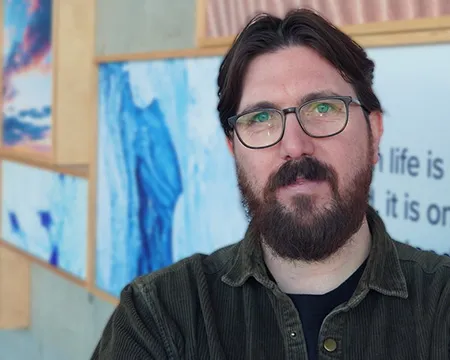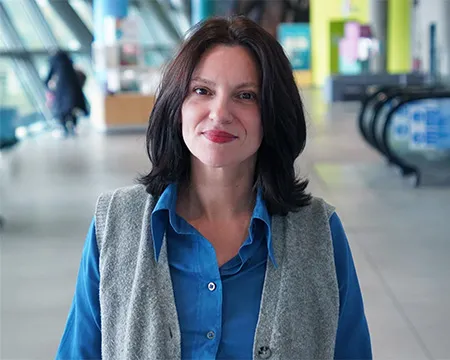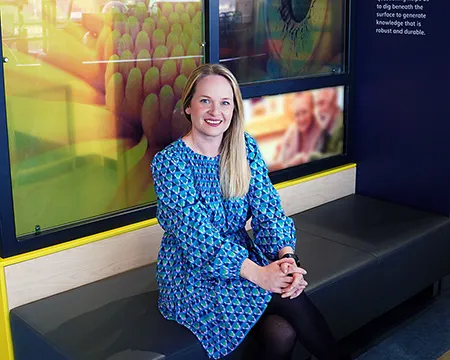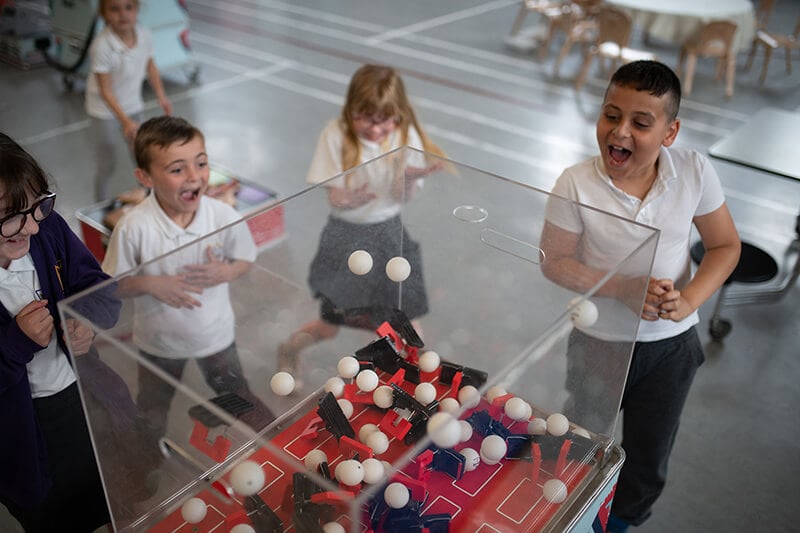What does innovation mean to Glasgow Science Centre?

Ahead of the launch of our new exhibition Idea No59, celebrating the innovative spirit in all of us, we spoke with members of the team at Glasgow Science Centre about what innovation means to them:
Nina Cameron, Planetarium Manager
The stars have long been a source of fascination and wonder for human beings; we painted the shapes we saw in the sky on the walls of our caves, we tied the ritual of our religions to the waxing and waning Moon, and we dreamt of how we might someday “break the surly bonds of Earth” and explore the heavens for ourselves.
Challenging accepted thought is how we change, learn, and begin to do things differently. By applying new ways of thinking to what were once considered insurmountable problems, humanity has left its footprints on the Moon. By working together to change the status quo, there has been a constant human presence in space for two whole decades. Innovation and human ingenuity gave us the tools to send a golden record of our voices soaring past the limits of our Solar System.
Innovation is the means through which we explore the cosmos. We could have accepted our limits as a species grounded by gravity and tied by a certain reliance on the planet we currently call home, but that just isn’t in our nature. Instead we turn our gaze upwards, and plan a future among the stars.
Tara Gibson, Learning Coordinator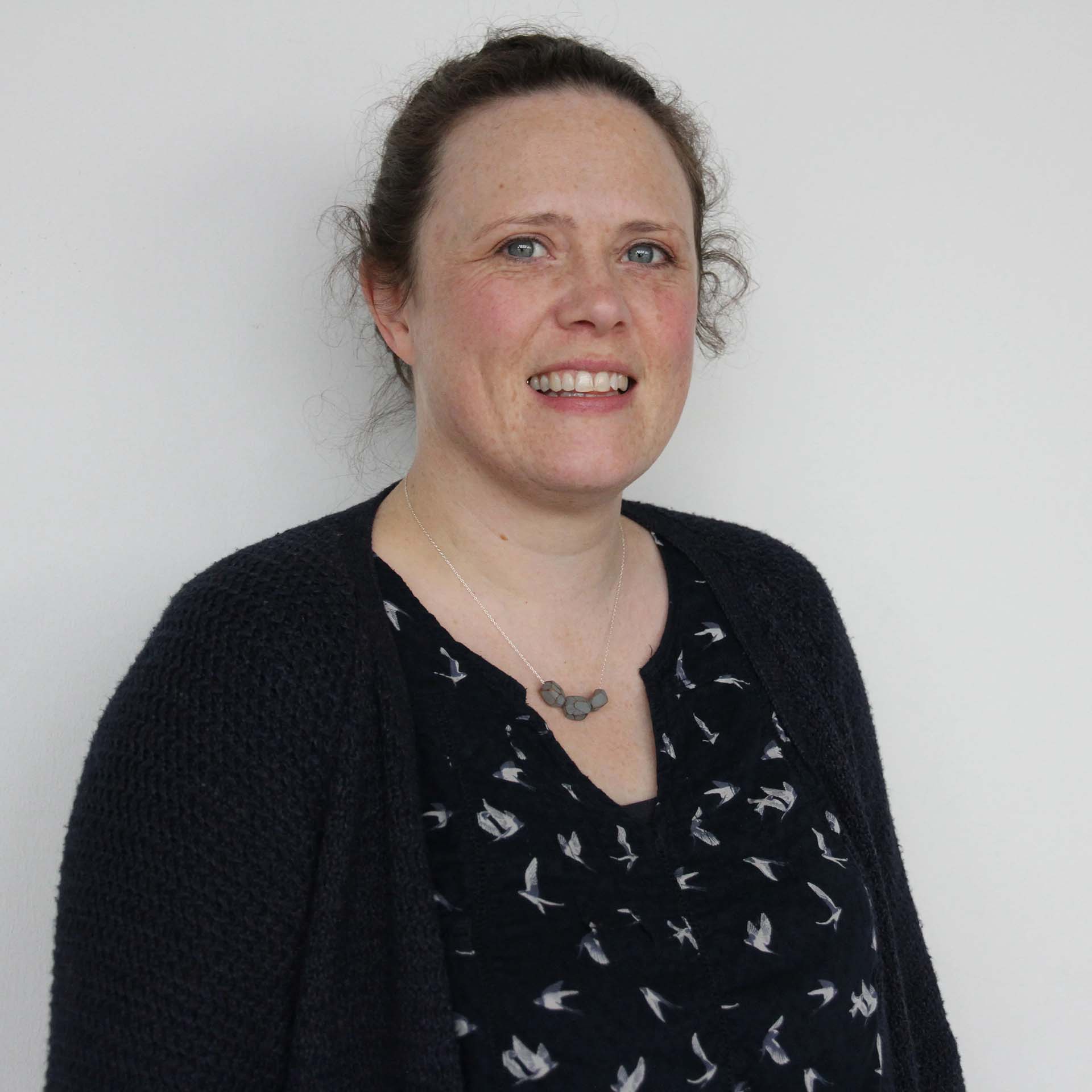
At a time when humans are realising that the pace of careless development is having stark consequences on our environment, the word innovation feels like both the curse that brought us to this point and the blessed saviour.
Innovation has changed the world and revolutionised how we live for the better and worse but innovation could also be a cure where we need to put things right.
Innovation is about making changes and introducing new methods. If the human race can think creatively about how we can introduce change, both big and small, then we could manage to reverse some of the damage.
We must act quickly on this and we must act together. We need to get people excited about the possibilities that creative thinking could bring, consider the positives from the past, the useful tools, the deeper understanding we now have of science and technology. How can we use all of this knowledge to make positive change?
Our ability to innovate may very well determine our future. Innovation is our chance.
Steven Hill, Graphic Designer 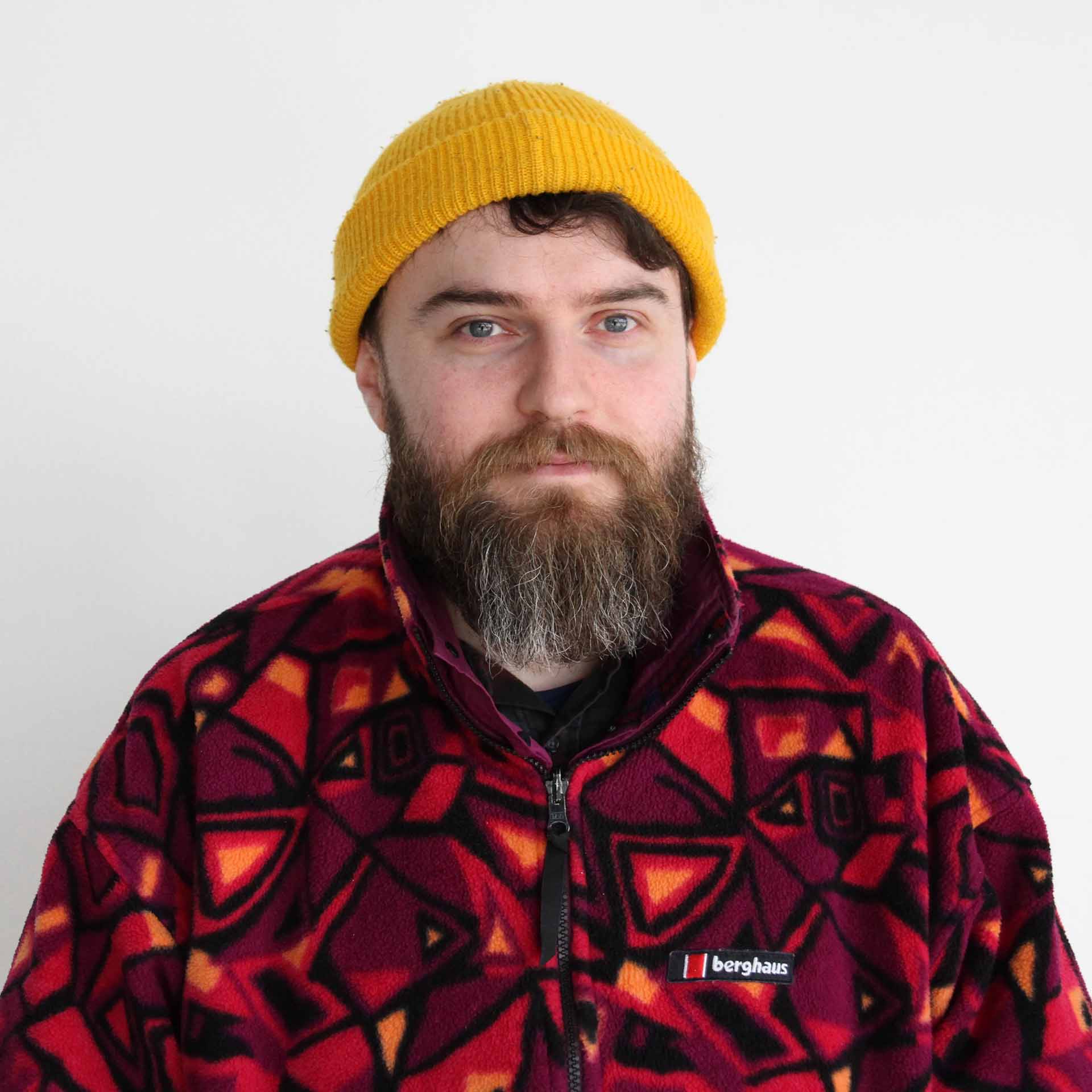
I remember the feeling of finding my dad’s first computer console in the attic. We plugged it in on a large box shaped television and waited for the games to load. There was something exciting and simple about these pioneering games. Seeing the Atari CX-2600 in action made me realise how much work had gone into making a game as advanced as Sonic the Hedgehog.
Having grown up alongside the computing revolution, as the internet developed from a weird noise on the home PC into the omnipresent sentient being it is today, it's hard to imagine those technologies being directly linked. I spent many evenings chatting with the person I would eventually marry on the long-gone MSN messenger, a platform which influenced the format of many of the messaging apps we use now. It’s clear that as progress has been made, we have kept the best bits of what came before.
Like many of us, I take innovation for granted, millions of ideas are being developed every day. Many of these ideas will secretly make my life easier. Each innovative new product has been influenced by the decades of development that went before it. Creativity means looking back as well as forward for inspiration, critical thinking allows us to adapt and improve, communication helps us understand what matters to each of us, while collaboration helps us make things that we can all feel part of. I think these ‘four Cs’ are skills we can all work on.
Lorna McKenzie, Communications Officer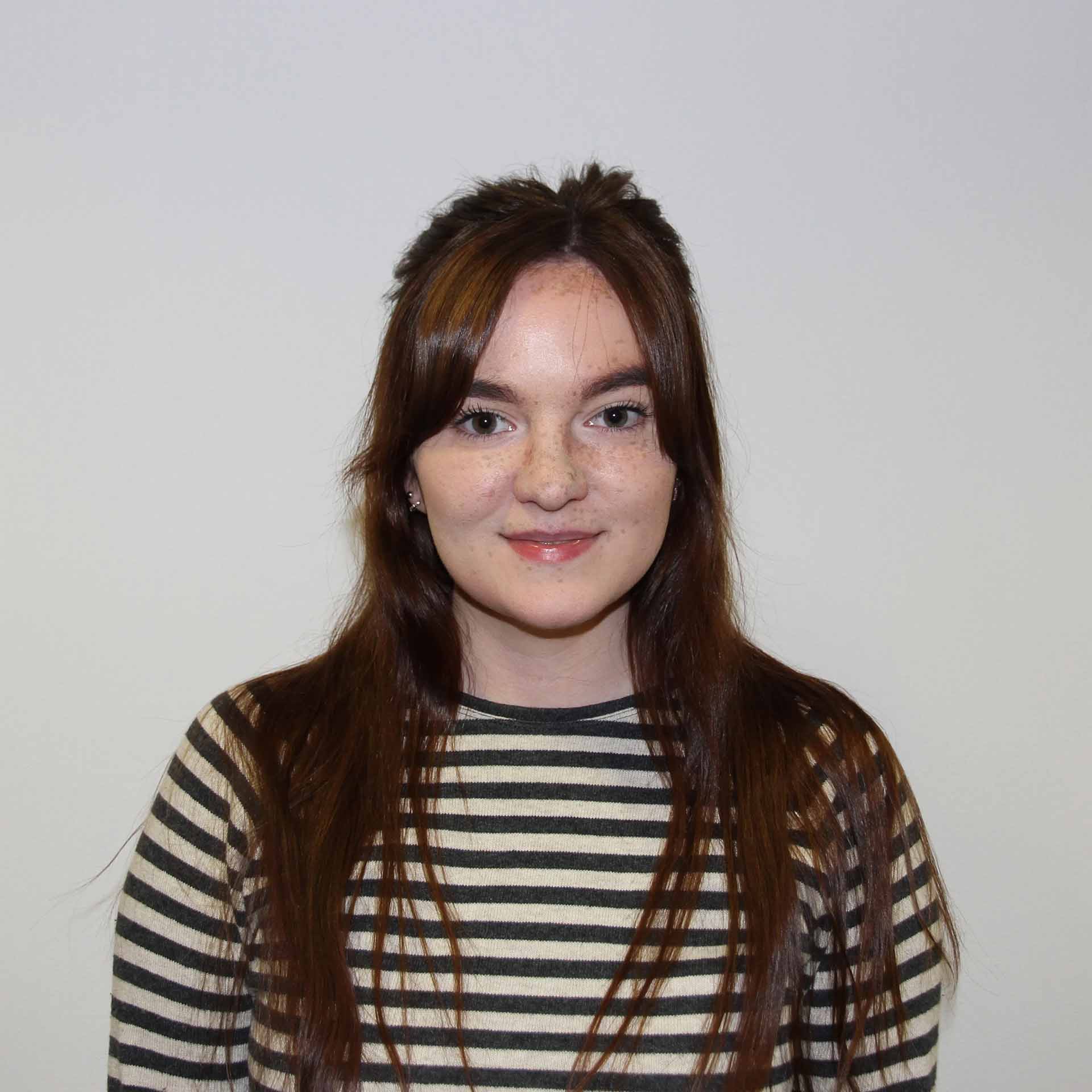
If you’ve ever had to stir the sugar in your tea with a fork because you can't find a spoon, that’s innovation. Innovation can also be developing a compound that can be used to 3D print arteries so surgical students don’t have to practice on actual humans. There’s less human sacrifice involved the in the tea stirring, but it’s still figuring out a way to do something differently.
To me, innovation is about adapting. It’s about taking something that isn’t working, and finding a way to make it work.
It’s a word that gets thrown around a lot. This technology is so innovative! Wow, isn’t this way of working innovative? I think we should do something innovative.
It tends to go hand in hand with science and technology. But we’re all capable of thinking innovatively, and every time something goes wrong and we have to find a way around it – we’re being innovative.
This doesn’t mean you need to have something you can show at the end. It doesn’t have to be a product that’s going to sell millions and be deemed successful. It’s not about creating the next big thing or disrupting the market, but about making the market that little bit easier to navigate.
Susan Meikleham, Learning Coordinator
I hate innovation. It’s one of those words that did have a meaning but now it is lost. I think it’s supposed to mean progress and new-ness. It’s a slippery idea.
Candles are dangerous: they fall over and burn your house down. Lightbulb.
In upstate New York, Leo Hendrik Baekeland thinks he’s doing us all a favour. It's 1907 and he has created something innovative. It’s hygienic, and durable. You can mould it into any shape you like. Visualise a colour, a shape, a size and you can make your dream into an artificial reality. Leo has started the plastic revolution. Everyone thinks plastic is fantastic. Imagine you had invented it, you would be really pleased with yourself too.
Hannah Wright, Sales Manager
On a scorching summers evening walking alongside the River Clyde, you can see the sun beaming off the titanium building that is Glasgow Science Centre - a very noiseless walk I might add, with not a tumbleweed in sight. My best ideas certainly come from quiet walks like this. But who designed the Squinty Bridge? Spanning the River Clyde with its innovative curved design, it gives a modern look to our waterfront. Once upon a time this masterpiece was named the Clyde Arc when it opened in 2006. By day, a striking visible landmark. By night, coloured architectural lighting that reflects off the river.
Innovation can be a very confusing word which people might love to hate. I’m sure most leaders would agree innovation is important, but I wonder how many agree what it actually means? I’m sure there are squillions of definitions, but do we know which is correct? To me, innovation is changing an idea that is already established by introducing new knowledge. Can we improve the bridges across Glasgow? Can we change the conversation? I feel we often ask ourselves “let's create new ideas” and "what's next?” but they don’t always follow through. Humour has bailed me out of some tight situations and if you go with your instincts and keep your humour, creativity follows. With luck, success comes too. Get everyone in one room to find, test, and implement great ideas and remember - if you lose the power to laugh, you lose the power to think.
Chris Banks, Cultural Events Coordinator 
Around 3500 BC a clever cookie of a caveman invented the wheel, 600 BC saw the discovery of static electricity, 1206 saw the first ever flushing toilet, and in 1928 sliced bread was packaged and sold for the first time.
You may have heard the phrase “The greatest thing since sliced bread," first used by the comedian Red Skelton who said: “don’t worry about television, it’s the greatest thing since sliced bread." This phrase is often used to describe the most useful innovation or development that has been invented for a long time. So what will be the next greatest thing?
I have always considered the internet as the ultimate winner of this. We are lucky to be in an age where information can be shared instantaneously around the world. We have the world in our pockets, we can find answers to questions that we have always wanted to know and share that funny cat video to all our friends.
But what is next, and how do we get there?
It starts with an idea, a creative spark. Where we can see a problem in the world that needs solving. This problem could be as great as solving the climate crisis or as figuring out how to stop the forks going missing in the staff room. That spark needs to be fuelled, work on your idea, give it purpose and meaning.
And from there, who knows - you might be the next greatest thing.
What does innovation mean to you?
At Idea No59 - Glasgow Science Centre’s new exhibition bringing ideas to life - you can celebrate the innovative spirit in us all and hone your skills and strengths. Who knows, you may be setting course towards the next great innovation that will shape the future.

